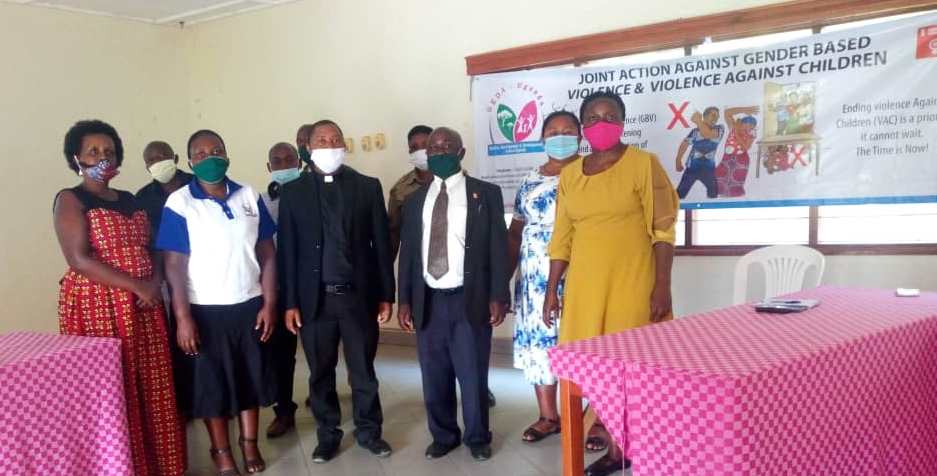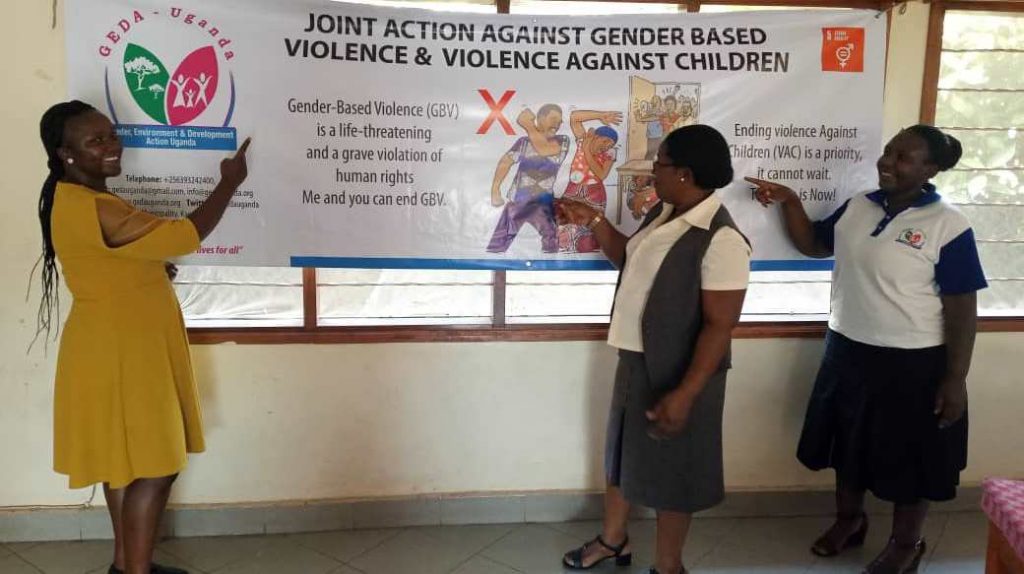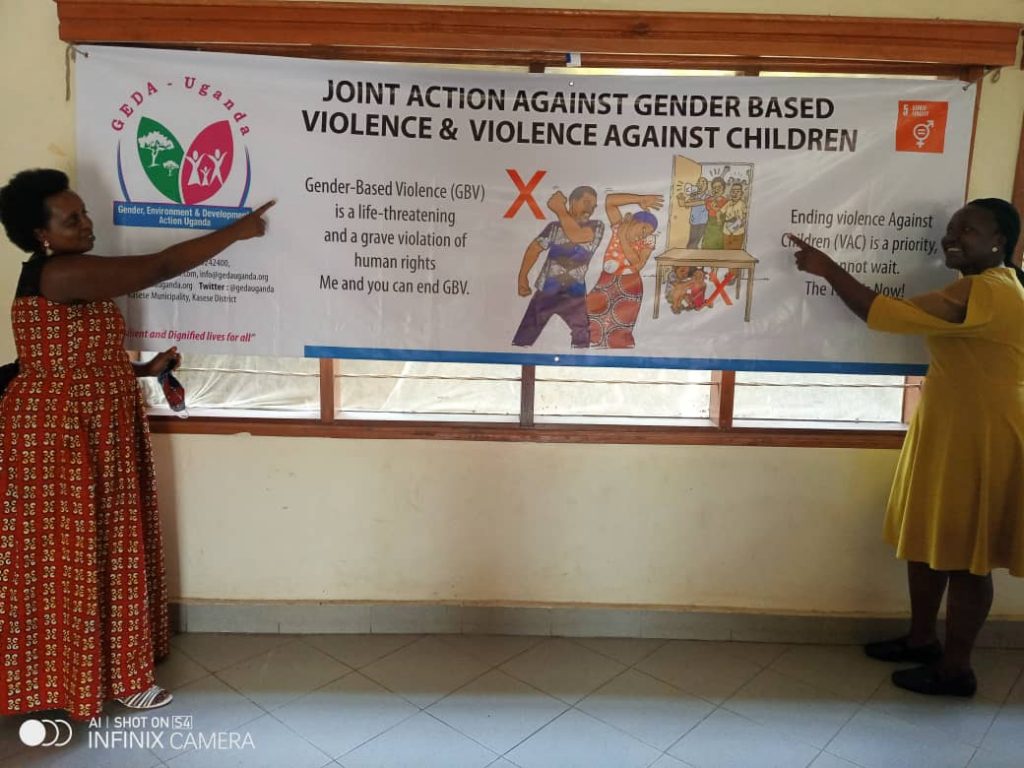In Uganda like elsewhere around the world, Covid-19 has led to an increase in teenage pregnancy. In order to gain basic necessities like sanitary towels, girls have engaged in negative coping mechanisms like transactional sex with men who took advantage of their need for money. Teenage pregnancies, among other factors is increasing the number of girls not in school. 98 million adolescent girls worldwide were not in school before COVID yet an additional 20 million is projected to be added due to the COVID-19 pandemic. Kasese District in western Uganda ranks highly in the magnitude of early marriages and teenage pregnancies rooted within the cultural norms with research evidence revealing that 52% of women aged 18-67 had prior teenage pregnancy. The situation was worsened by the COVID-19 pandemic lock down that led to the closure of schools. Data from the District health, education and probation offices show that in July 2020, 2,372 school going girls conceived and 128 married off during the lock down in only 10 Districts, Kasese inclusive. This was partly attributed to the lockdown that created more redundant time for the learners, who ideally were supposed to be engrossed in the government’s e-learning program. It is against this background that Gender-Environment and Development Action started the skilling programme for teenage mothers to equip them with life skills to help them function independently as adults and parents. The programme is targeting 10 groups of teenage mothers with a total membership of 300 in Kasese District Western Uganda. The programme kicked off with training of 21 teenage mothers in menstrual hygiene management that focused on making of reusable sanitary pads. The 21 trainees are form from Kasese Municipal teenage mothers group that has a membership of 35 aged 14 – 20, all having babies aged 0-1 year. This is an
 In Uganda like elsewhere around the world, Covid-19 has led to an increase in teenage pregnancy. In order to gain basic necessities like sanitary towels, girls have engaged in negative coping mechanisms like transactional sex with men who took advantage of their need for money. Teenage pregnancies, among other factors is increasing the number of girls not in school. 98 million adolescent girls worldwide were not in school before COVID yet an additional 20 million is projected to be added due to the COVID-19 pandemic. Kasese District in western Uganda ranks highly in the magnitude of early marriages and teenage pregnancies rooted within the cultural norms with research evidence revealing that 52% of women aged 18-67 had prior teenage pregnancy. The situation was worsened by the COVID-19 pandemic lock down that led to the closure of schools.
In Uganda like elsewhere around the world, Covid-19 has led to an increase in teenage pregnancy. In order to gain basic necessities like sanitary towels, girls have engaged in negative coping mechanisms like transactional sex with men who took advantage of their need for money. Teenage pregnancies, among other factors is increasing the number of girls not in school. 98 million adolescent girls worldwide were not in school before COVID yet an additional 20 million is projected to be added due to the COVID-19 pandemic. Kasese District in western Uganda ranks highly in the magnitude of early marriages and teenage pregnancies rooted within the cultural norms with research evidence revealing that 52% of women aged 18-67 had prior teenage pregnancy. The situation was worsened by the COVID-19 pandemic lock down that led to the closure of schools.
Data from the District health, education and probation offices show that in July 2020, 2,372 school going girls conceived and 128 married off during the lock down in only 10 Districts, Kasese inclusive. This was partly attributed to the lockdown that created more redundant time for the learners, who ideally were supposed to be engrossed in the government’s e-learning program.
It is against this background that Gender-Environment and Development Action started the skilling programme for teenage mothers to equip them with life skills to help them function independently as adults and parents. The programme is targeting 10 groups of teenage mothers with a total membership of 300 in Kasese District Western Uganda.
 The programme kicked off with training of 21 teenage mothers in menstrual hygiene management that focused on making of reusable sanitary pads. The 21 trainees are form from Kasese Municipal teenage mothers group that has a membership of 35 aged 14 – 20, all having babies aged 0-1 year. This is an indication that all these conceived during the lockdown. The training in making of reusable sanitary pads was conducted by Ms.Kidima Margret of GEDA Uganda in Kidodo cell, Central Division, Kasese Municipality where the group members reside. The training was practical and by the end of the training session each participant was able to make 2 reusable sanitary pads.
The programme kicked off with training of 21 teenage mothers in menstrual hygiene management that focused on making of reusable sanitary pads. The 21 trainees are form from Kasese Municipal teenage mothers group that has a membership of 35 aged 14 – 20, all having babies aged 0-1 year. This is an indication that all these conceived during the lockdown. The training in making of reusable sanitary pads was conducted by Ms.Kidima Margret of GEDA Uganda in Kidodo cell, Central Division, Kasese Municipality where the group members reside. The training was practical and by the end of the training session each participant was able to make 2 reusable sanitary pads.
During the training the young mothers in the their words appreciated Gender-Environment and Development Action for the work done and one of trainees aged 16 years had this to say “this skill is going to help me make my own pads for use and some for sale that will me help me buy soap and other small basic needs for my baby”, she however appealed to GEDA and other development partners to support them with more skills like tailoring, shoe making, knitting among others that will help them generate income to take care of themselves and their babies. She further added that that given an opportunity, she would go back to school.
In attendance was the Community Development officer from Kasese Municipality who thanked GEDA-Uganda for the support and requested for more skilling trainings for the adolescent mothers. The training also integrated a module on the basic of GBV and VAC prevention and response. GEDA- Uganda Shared their tool free line number 0800100029 with the teenage mothers to report any cases of GBV and VAC and as well report any challenges that they service for timely response and referral.
There an urgent call for Government and other development partners to support life skilling for teenage mothers to help them function independently as adults and as parents to take good care of their children and as well be economically empowered to resist any further negative coping mechanism that lead to viscous cycle of teenage pregnancies, poverty and malnutrition.
GEDA has a comprehensive training manual for teenage mothers with modules on self-realization, skilling, psychosocial support, parenting, reproductive health, nutrition for lactating and children below 5years , financial inclusion and protection for delivery of a comprehensive training package.

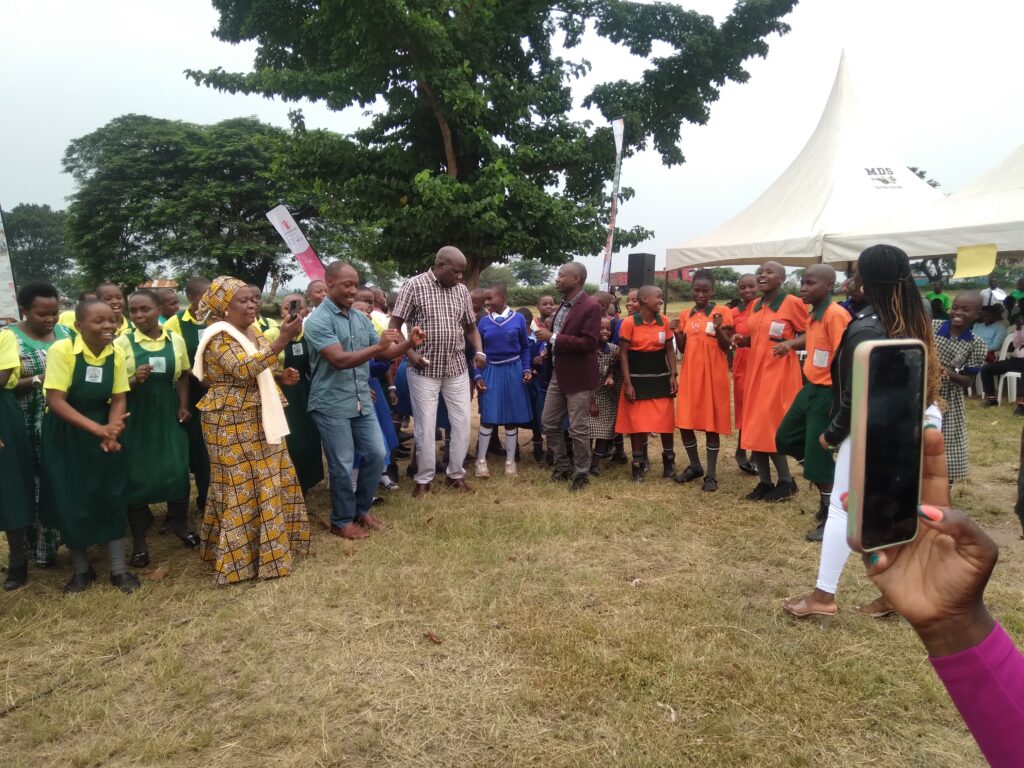
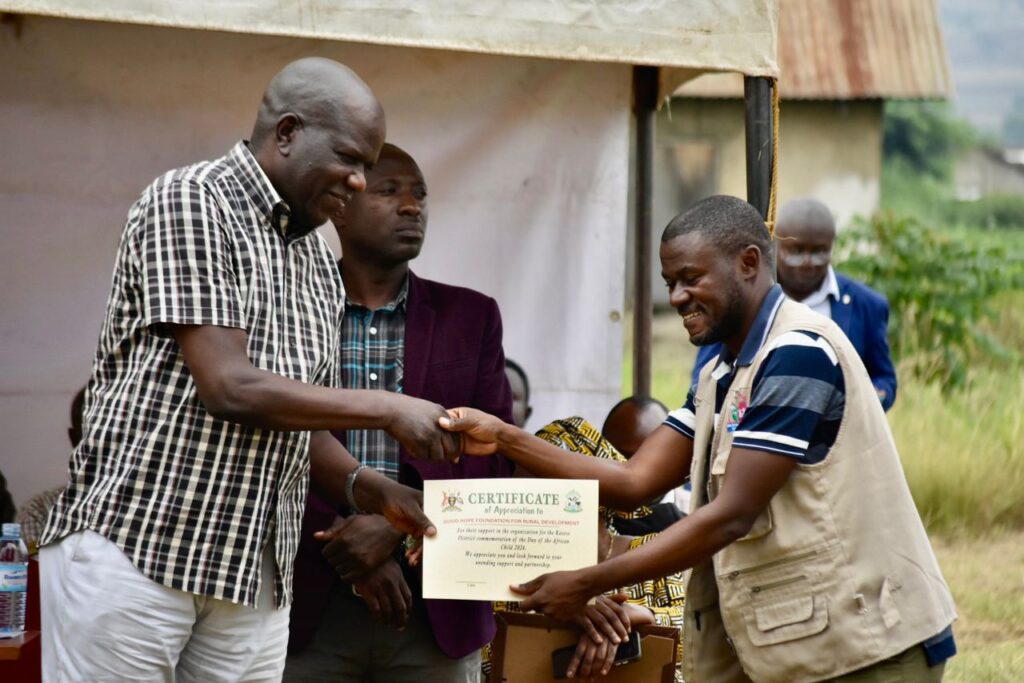
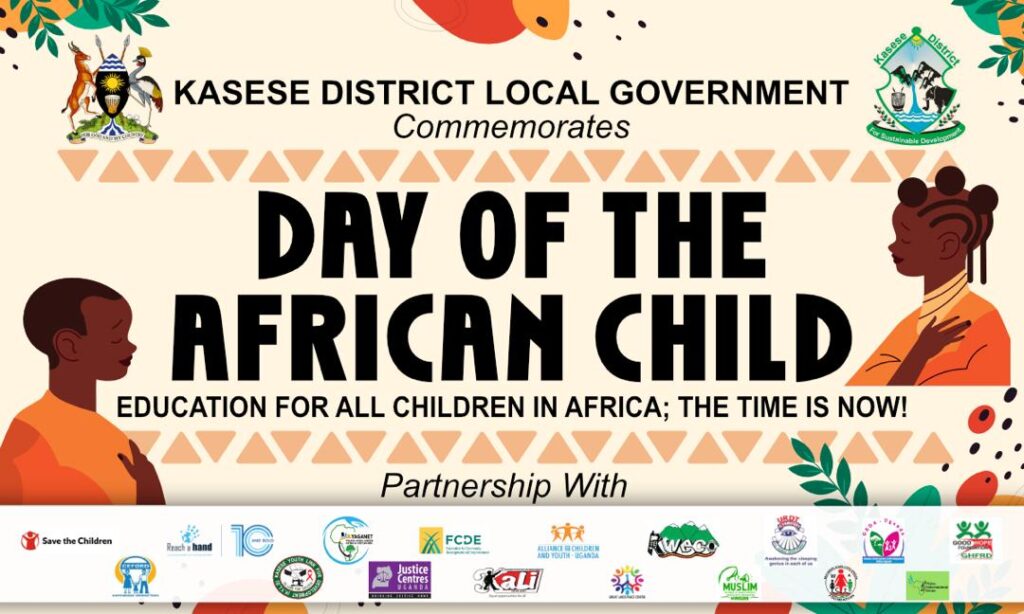

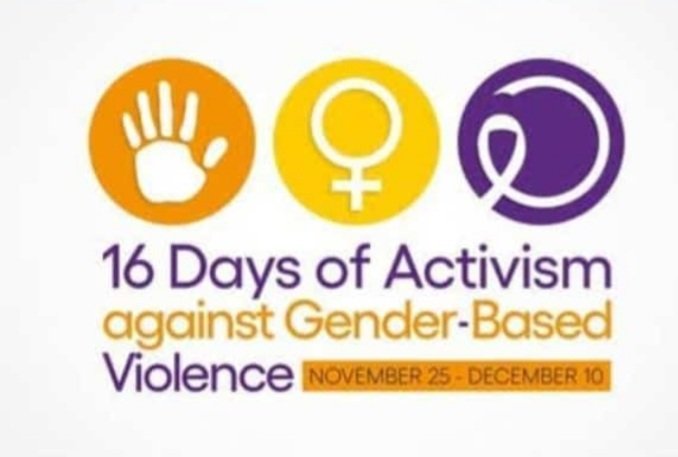

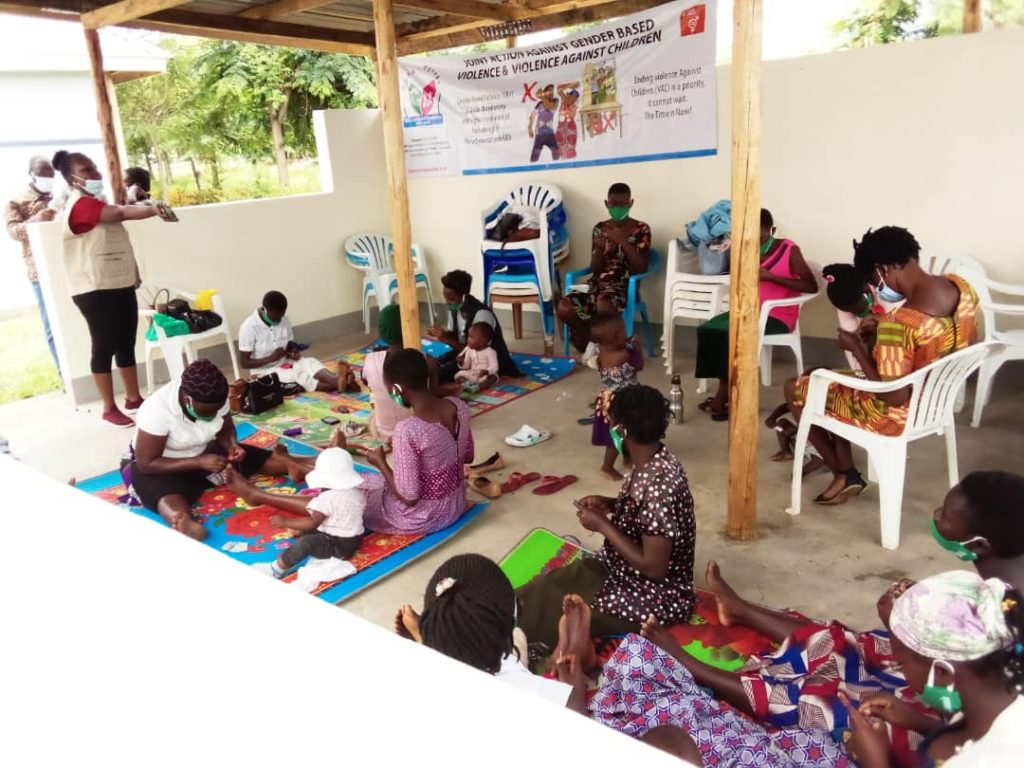
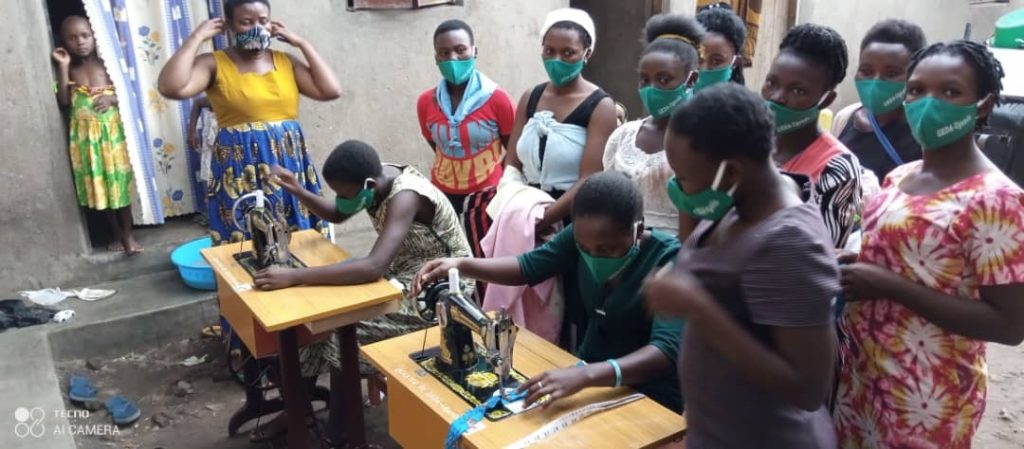
 In Uganda like elsewhere around the world, Covid-19 has led to an increase in teenage pregnancy. In order to gain basic necessities like sanitary towels, girls have engaged in negative coping mechanisms like transactional sex with men who took advantage of their need for money. Teenage pregnancies, among other factors is increasing the number of girls not in school.
In Uganda like elsewhere around the world, Covid-19 has led to an increase in teenage pregnancy. In order to gain basic necessities like sanitary towels, girls have engaged in negative coping mechanisms like transactional sex with men who took advantage of their need for money. Teenage pregnancies, among other factors is increasing the number of girls not in school.  The programme kicked off with training of 21 teenage mothers in menstrual hygiene management that focused on making of reusable sanitary pads. The 21 trainees are form from Kasese Municipal teenage mothers group that has a membership of 35 aged 14 – 20, all having babies aged 0-1 year. This is an indication that all these conceived during the lockdown. The training in making of reusable sanitary pads was conducted by Ms.Kidima Margret of GEDA Uganda in Kidodo cell, Central Division, Kasese Municipality where the group members reside. The training was practical and by the end of the training session each participant was able to make 2 reusable sanitary pads.
The programme kicked off with training of 21 teenage mothers in menstrual hygiene management that focused on making of reusable sanitary pads. The 21 trainees are form from Kasese Municipal teenage mothers group that has a membership of 35 aged 14 – 20, all having babies aged 0-1 year. This is an indication that all these conceived during the lockdown. The training in making of reusable sanitary pads was conducted by Ms.Kidima Margret of GEDA Uganda in Kidodo cell, Central Division, Kasese Municipality where the group members reside. The training was practical and by the end of the training session each participant was able to make 2 reusable sanitary pads.
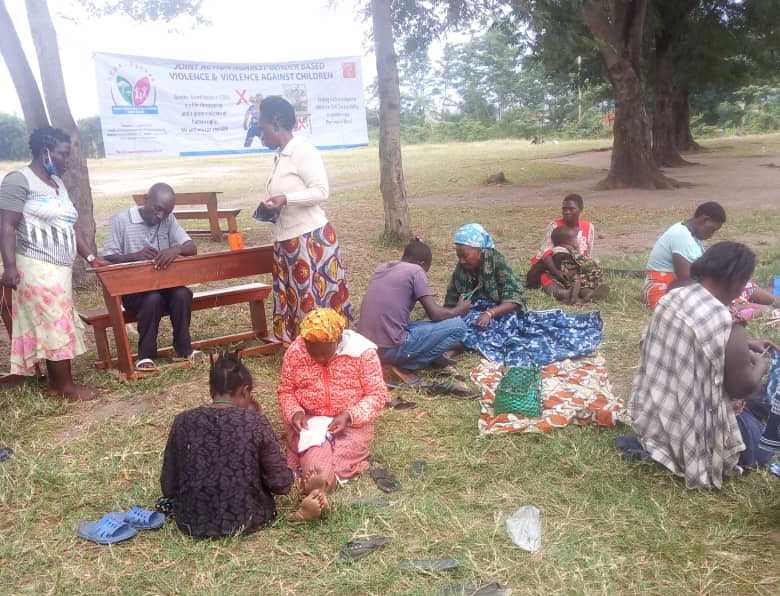



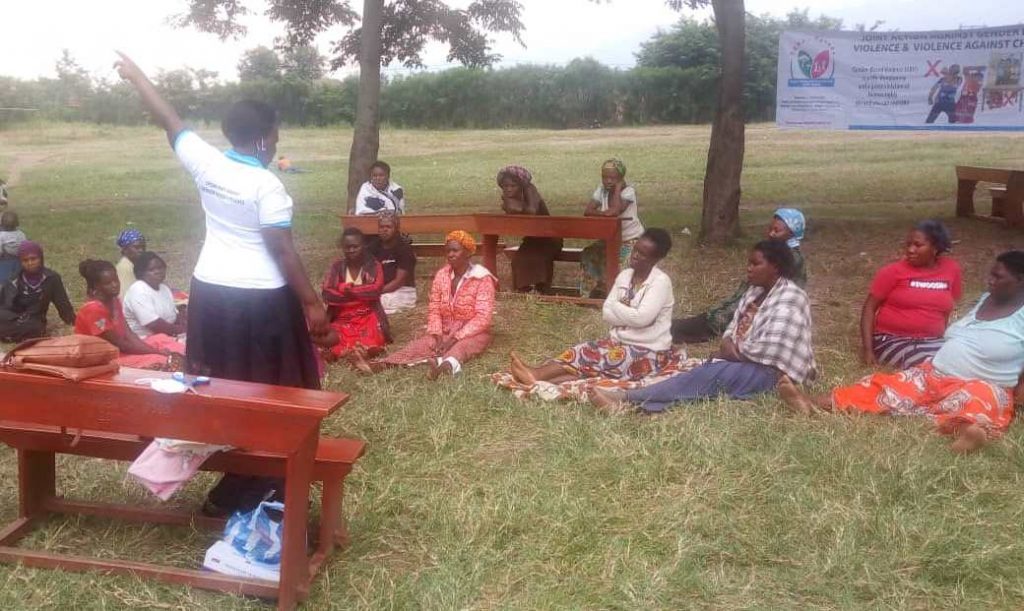
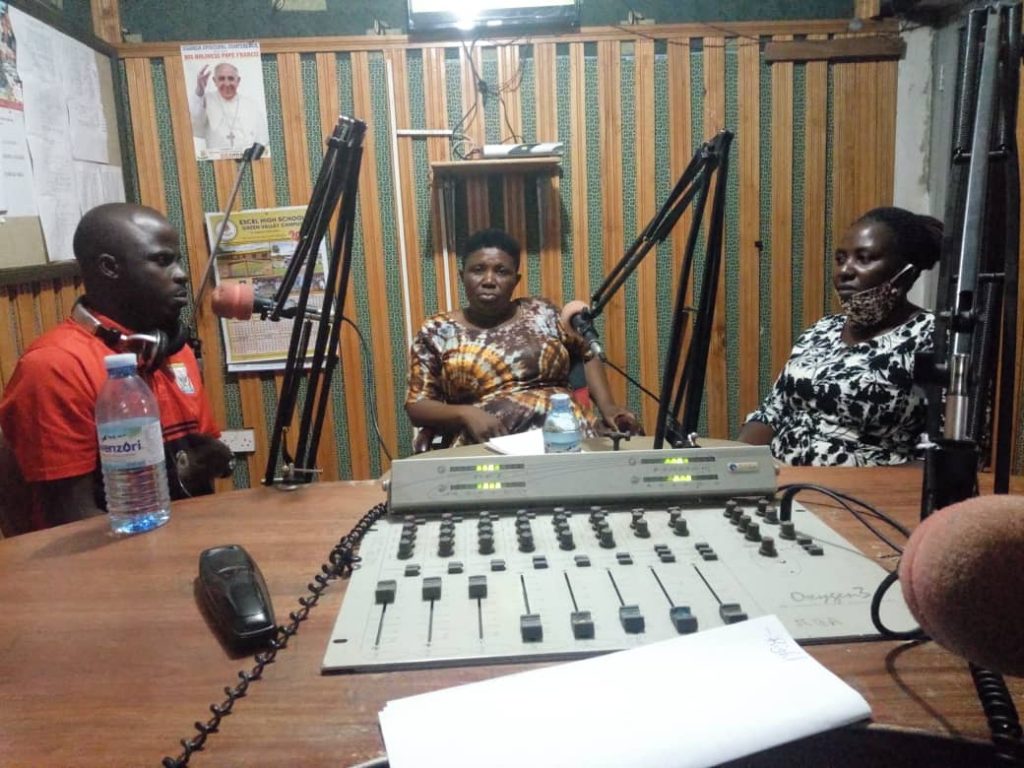
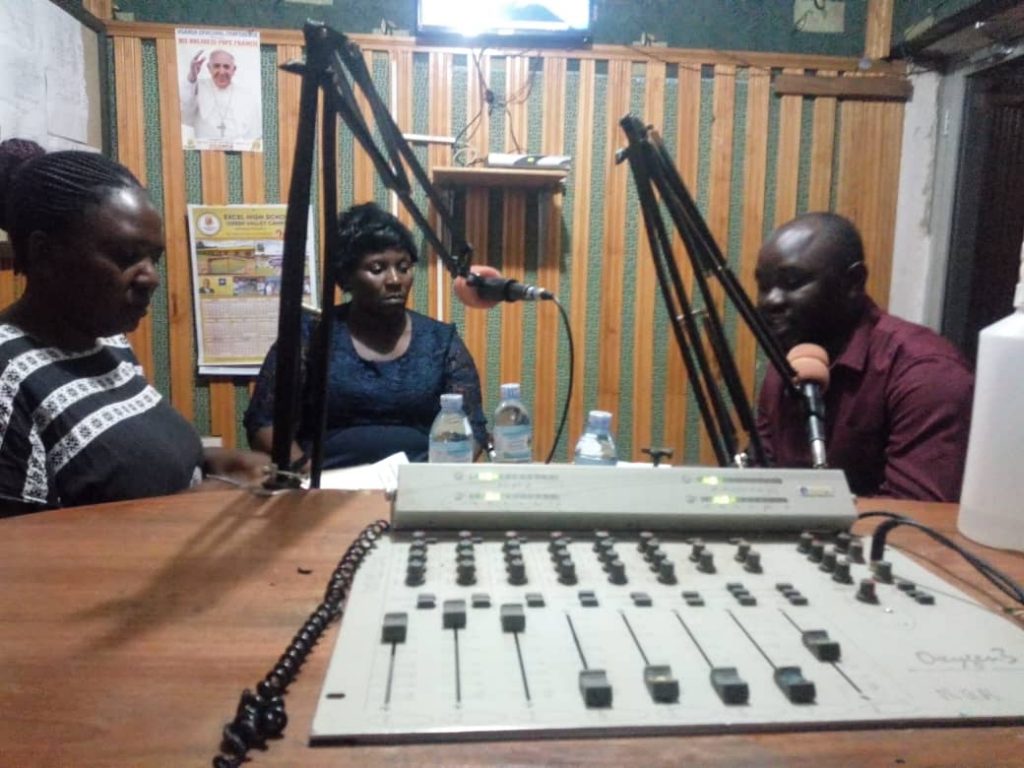
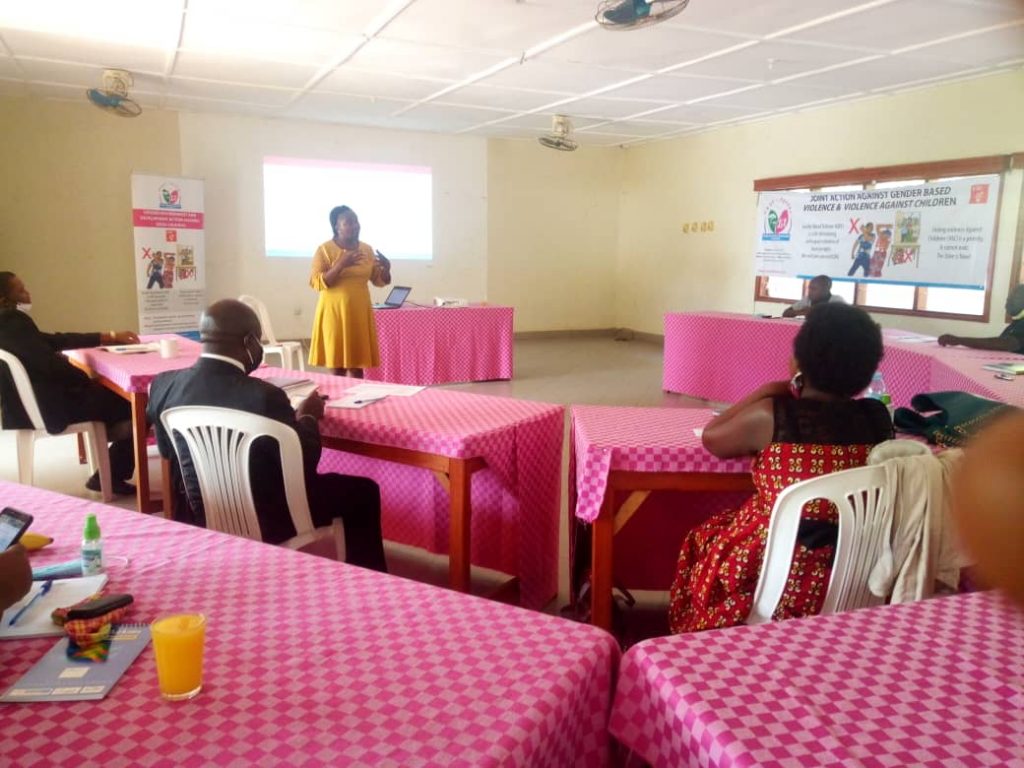 Gender Environment and Development Action (GEDA –Uganda) has been asked to embrace partnerships for joint action against VAC and GBV. This message was delivered by Kasese District stakeholders at a scientific breakfast inception meeting organized by GEDA-Uganda to introduce the project titled; creating mass awareness to mitigate and respond to VAC and GBV during COVID-19 lock down in Kasese District with funding from Fr Roose Fund. The inception meeting attended by the Deputy Resident District Commissioner (RDC), the District Education Officer (DEO), Police in charge of Child and Family, GEDA-Uganda Board chairperson, the principal Community Development Officer – Kasese Municipality, UGANET, Rwenzori Women Forum, the District Probation Officer, Catholic Relief Services (CRS) among others made a strong appeal to GEDA_ Uganda to explore innovative approaches to mitigate and respond to Violence Against Children(VAC) and Gender Based violence(GBV).
Gender Environment and Development Action (GEDA –Uganda) has been asked to embrace partnerships for joint action against VAC and GBV. This message was delivered by Kasese District stakeholders at a scientific breakfast inception meeting organized by GEDA-Uganda to introduce the project titled; creating mass awareness to mitigate and respond to VAC and GBV during COVID-19 lock down in Kasese District with funding from Fr Roose Fund. The inception meeting attended by the Deputy Resident District Commissioner (RDC), the District Education Officer (DEO), Police in charge of Child and Family, GEDA-Uganda Board chairperson, the principal Community Development Officer – Kasese Municipality, UGANET, Rwenzori Women Forum, the District Probation Officer, Catholic Relief Services (CRS) among others made a strong appeal to GEDA_ Uganda to explore innovative approaches to mitigate and respond to Violence Against Children(VAC) and Gender Based violence(GBV).